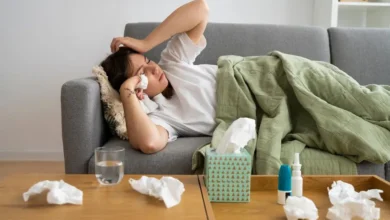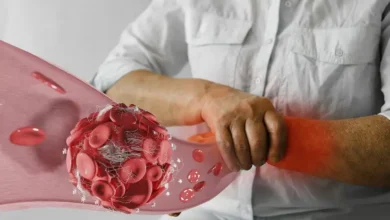10 Tips on How to Overcome an Allergic Reaction!
This past week, I had a terrible allergic reaction and am just getting over it. It was the usual story. When I cook at home, it runs smoothly all of the time. When I eat in restaurants — even if I’m super careful, things can and do go completely wrong.
As for me, unlike the situation with nuts or dairy, I could almost eat that food without any changes in my body except swelling and absence of anaphylaxis, but certain ingredients, which I haven’t found out yet, always make me dizzy, including things like this some of which stop my digestion entirely and the other ones are only intolerable upon consuming them as they make me very sick even though they are not real allergies but “intolerances” alone sounds lame; let me tell you that some of these intolerable foods make me pass out totally.
I have been fortunate these days. It’s been a long time since I had anything like this big flare-up. I’m meticulous with my food and always keep something edible at home. However, I yielded to Tesco Chinese Selection during my five-year-old niece’s birthday celebration weekend.
They were calling me out. I rarely go there, but the packet stated it was No Nuts, so that was one thing in its favor. Besides that, it read: sesame, wheat, gluten, fish, and soya, amongst other things you can eat too, you know? And no mention of vile dairy. The whole ingredients list remained unchanged, and after careful perusal, there appeared nothing repulsive about it but …… Think I was coriander-ed!
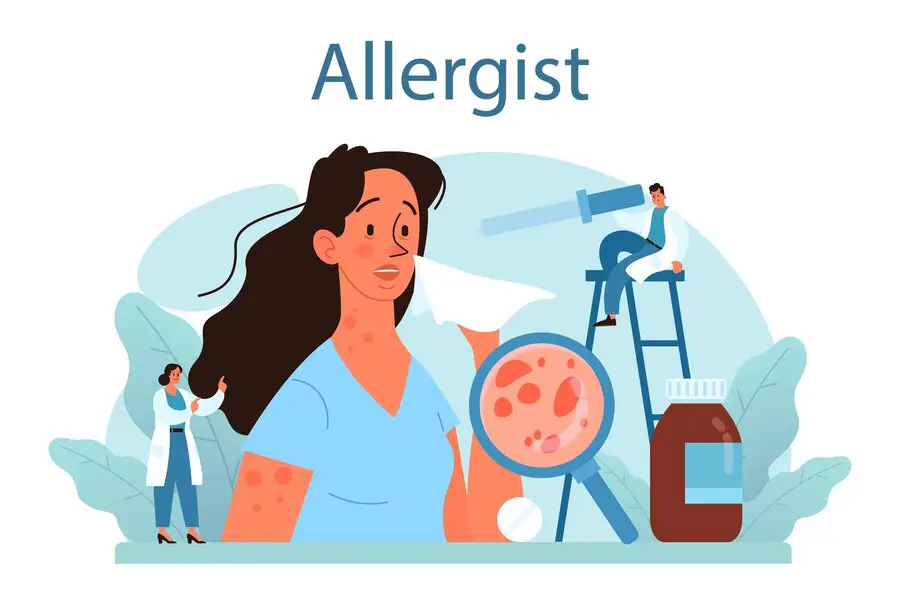
However, I did notice my chin itching later in the day while we were still leaving as fog began coming down upon us. Is there anyone else who feels the same way? It is like a black ominous cape behind me; it has a form I can see and silently warns me that I have chosen to ignore it for too long.
It will soon be happening again, and a small amount has just been ingested, that is, the crusty skin that keeps on itching whenever I eat processed foods. By now, its arrival is imminent, and there’s nothing I can do about it; all I can use are antihistamines to help, but still, I have some very uncomfortable days ahead.
Well, at least this most recent reaction could have been caused by coriander. Who in their right mind would not tolerate coriander? Well, I am one such person. I am used to consuming it in tiny amounts and starting to incorporate it back into my diet, so this seemed fine.
Nope. Not OK! My face looks as if I am sunburned and peeling off skin on top of swollen burns; my eyes constantly water while my nose fills up with mucus; worse yet, I’m so itching! This is hugely distracting, especially when combined with the fact that my skin has become dry as a bone and seems to drink up any moisturizer or emollients applied to it.
The common denominator in all my responses happens to be this. They do occur in the aftermath of eating processed foods. I get a reaction to anything that’s mass-produced in factories and looks like it is healthy, with no additives, flavors, or colors, as well as any other things they include in food, yet I still have a problem. What does that mean? Why am I suffering from allergies caused by sprological currants? Can I tell if it was coriander or something else?
Nevertheless, at times, the work ethic that has evolved through trial and error might serve me well under pressure and stress; however, even the simplest truths often slip through my fingers and end up being permitted that ought to have never been allowed.
Today at work reminded me about these tips for Christmas one year that I wrote down on this desk for you a lot. Because when I made this list of tips, what slipped my mind was doing anything concerning my symptoms.
Be prepared in case you have an accident like mine. Don’t keep quiet about it. I have learned a lot of things that can help save your life during an allergy attack. These are my top ten ways to cope with some reactions due to allergies.
1. I need drugs to Overcome an Allergic Reaction!
Ensure your supply of anti-allergy medications is adequate, and always check the expiration date on your EpiPen; if this device needs to be renewed, do it instantly. Always have a spare inhaler with you, and ensure both are within the expiry period. On the other hand, if one has a lousy flare-up, there’s no harm in getting some steroids for emergencies when keeping them in your medicine cabinet is also good.
At times, I believe that topical steroid creams work best for allergy-induced eczema; they will think about thin skin, but what about the side effects of itching all over, being unable to sleep, forming scar tissue from scratching, feeling pain, feeling sad—none of these things are funny either.
Thus, I mean low percentages like Hydrocortisone, potent steroids on your face, Or Elocon, which is a miracle, and you just a little bit. In case of excessive mucus during an allergic attack, nasal sprays and eye drops may also help.
2. Frozen Water, Frozen Water Baby
I own a fantastic Roshgo cool face mask that I always put in my freezer. The lifesaver for this matter is when I get an allergic reaction because it cools and soothes the stinging on my skin. Use plastic baggies from the freezer or a bag of frozen peas/ice cubes in a plastic bag if you have them ready.
Return the ice pack to your freezer so you can use another soothing cold compress later if desired. It is undoubtedly unpleasant and chilling when it comes to managing itching skin by applying some coldness.
3. Dealing with Pain
However, if you have a headache, would you think twice before taking paracetamol or ibuprofen? Are you going through an allergic reaction? Be easy on yourself; take some painkillers to help reduce the initial painful itching during the attack stages.
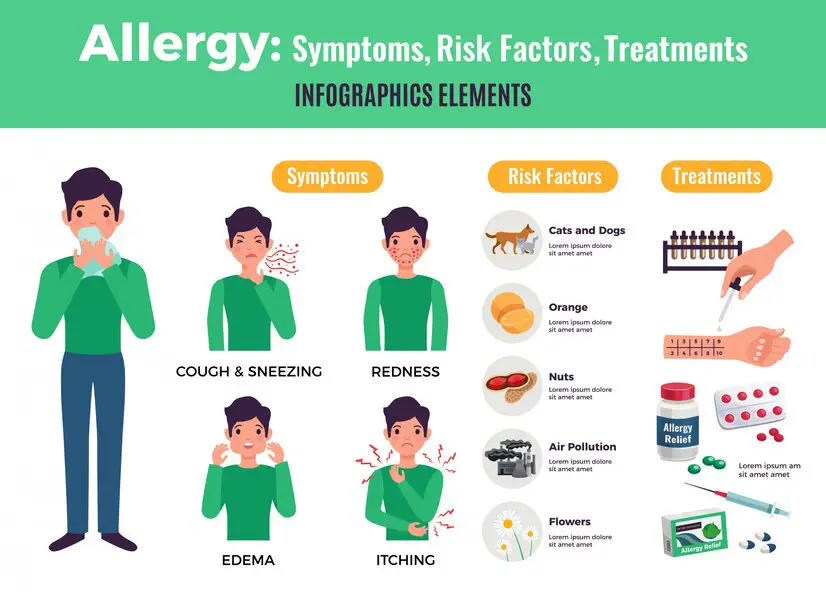
4. Chilling with feet rested up.
You may be unable to do this if you have work or are responsible for kids. However, even telling your cronies and family members that you need time alone, even if it is only for an hour or so, can help a lot. Just sneak into your bedroom or any other silent place.
Take a few painkillers plus antihistamines, and then put on ice packs; stay calm. So, let’s think positively about how we can imagine healed eczema and damaged skin back to normal, playing cool jams softly in the background, switching off bright lights , and unwinding.
5. Keep drinking to keep hydrated.
Drinking water is the best way to rehydrate your body, which helps replenish its fluids. Another option is calming chamomile and nettle or rooibos tea.
6. Hydrate
Hydrating your skin is a must- don’t forget that while going through an allergy. Take a shower and wash your hands, face, or body parts in case something is brought home on your hands. Slap on your favorite lotion frequently and keep applying it many times. This will leave you feeling slimy and uncomfortable for some time, but it helps to heal the skin.
A bit of 99% Aloe vera gel squeezed onto your skin, followed by an oily product like Epaderm that seals everything in. It is an organic healer, Aloe Vera. Another remedy for bacterial infections is Tea Tree oil.
Besides, if you are itchy, always clean your skin with water several times during the day. Splashing cold water on your face can be extremely helpful, as can putting the skin with the moisturizer you choose later. Don’t keep touching your face, as impossible as it may seem, especially when itching.
7. A Little Bit of Help from Mother Nature
Today, we will discuss how you can assist with an allergy attack or allergic reaction, such as boosting your immune system using herbs and plants or clearing blocked nasal passages and mucus causing a buildup in your body. Take some echinacea, grape seed extract, evening primrose or borage oil, stinging nettle, or milk thistle. More vitamins like zinc, E, calcium, and magnesium would help the skin get back on track.
8. Avoid its repetition
Recall what brought about the reaction when you look back. If unsure, note down all possible suspects, such as what you have eaten, where you have been, and what you have used or done differently recently. For example, it may be a new shower gel that has been bought, another type of laundry detergent, soap from a different manufacturer, or other sauce varieties; examine the ingredients, and if it is safe, do a small patch test on a piece of your skin to see if there are any skin reactions.
Determine the cause and avoid repeating the same thing in the future for yourself and others by taking the necessary steps. If you are unsure of this, ask your physician about food allergy tests that could be carried out at your local allergy clinic.
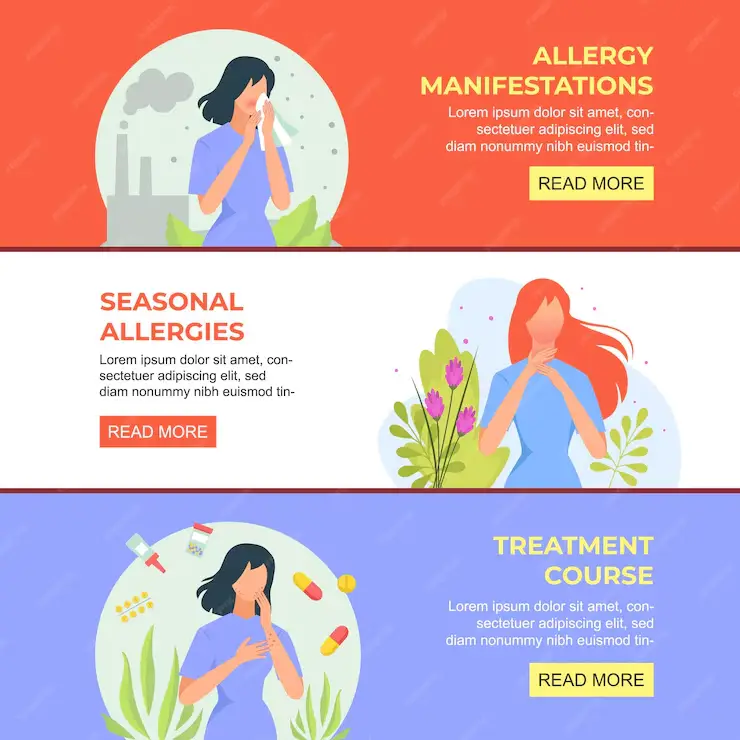
9. Click
If an allergic reaction occurs, I will take pictures of it and save the photo under the date and possible cause. This will also help when you want to show your doctor what happened last time or to keep an eye on how much better or worse you tolerate that allergic reaction; have your intolerance reactions been getting better or worse, or do they keep changing?
What is causing them? Just get someone to take a picture at its worst point, and then you will be surprised when you look back later; who knows when this photo might come in handy sometimes.
10. Familiarize yourself with your skin.
Firstly, understand your skin. Maintain a diary of symptoms and mood, where you write down what you ate, how you felt, and any changes, rashes, or reactivity. With this, you can quickly notice small changes and adjust your coping methods earlier, thereby minimizing symptoms. Knowing what intolerances or allergies exist will benefit you in the long run. This is serious enough to ensure that if there’s no infection or blistering like this one, consult the doctor urgently.
11. I have another one, making it 11. Go outside!
In addition, I will give you an eleventh tip for free. This beautiful sunshine and the invigorating boost it has provided me just by stepping out of the door for a mere ten minutes of fresh air has taught me how getting out is good medicine, too. You wouldn’t think so.
Wrapping yourself up in a scarf and hiding in your cave (and by ‘your,’ you know, I mean ‘my’) won’t bring on anything, but I can promise you that fresh air is right near the top of my list of things to help. Once most of the pain and swelling goes down, go outside, walk, or sit somewhere else for some minutes as you watch around yourself. Trust me; it works even if slightly.
I pray that none of you go through anaphylactic shock, but we are human, and mistakes happen significantly when we relax, partying at friends’ houses, or going out to eat and drink during the holidays. But should this unfortunate event occur, respond quickly to prevent the symptoms from worsening.
Be safe. I hope you don’t react to it by getting an allergy, which might be slightly relieved with some of the above. Are there other home remedies or life hacks for dealing with allergic attacks? I would love to hear from anyone who can relate to this or has anything else to suggest.

